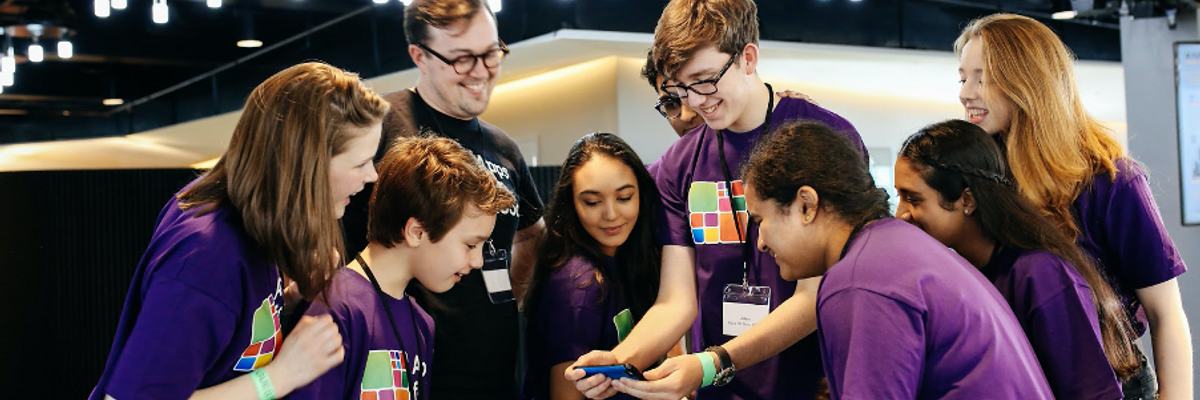
Why it matters
There is a lack of quality digital skills education in schools and young people are not choosing digital education options. The percentage of students taking a computing GCSE is dropping. In 2018 BCS released statistics that showed there had been a decline of 22,850 (16%) students taking Computer Science as a GCSE. A report from Education and Employers found that 18% of teachers do not believe that digital skills are being taught in schools, with 25% of teachers claiming that this was due to lack of funding and lack of access to technology and computers.
Apps for Good has a strong track record of helping to tackle these problems. We have consistently recorded high levels of skill increase related to product design, coding, confidence, and team working. By developing our unplugged courses we enable students to continue their digital learning even if they are without computers or have to work from home.
The Background
The Apps for Good story begins in 1995, Rio de Janeiro; Rodrigo Baggio founded CDI. His vision was that young people could be empowered to change the world through technology. Fast forward to 2009, when Iris Lapinski completed a feasibility study, with the CDI team. The outcome; the founding of Apps for Good.
The course was piloted in South London in 2010. Just nine students, one educator, three experts, and three apps were involved in this first iteration of the course. By 2011, 38 schools in England had launched the course. When UK Education Secretary Michael Gove announced a major change to the ICT curriculum in schools in 2012 Apps for Good was mentioned as a best practice example.
Now in 2020, 170,000 students have participated in the Apps for Good course worldwide, with key focus areas of the UK, Portugal, and Arkansas, USA.
What you can do
You can find out what's involved in starting an Apps for Good in your local community by reading our 5 step guide below. Once you're ready to go fill in this short form and we'll make sure you have everything you need to get started.

リンク